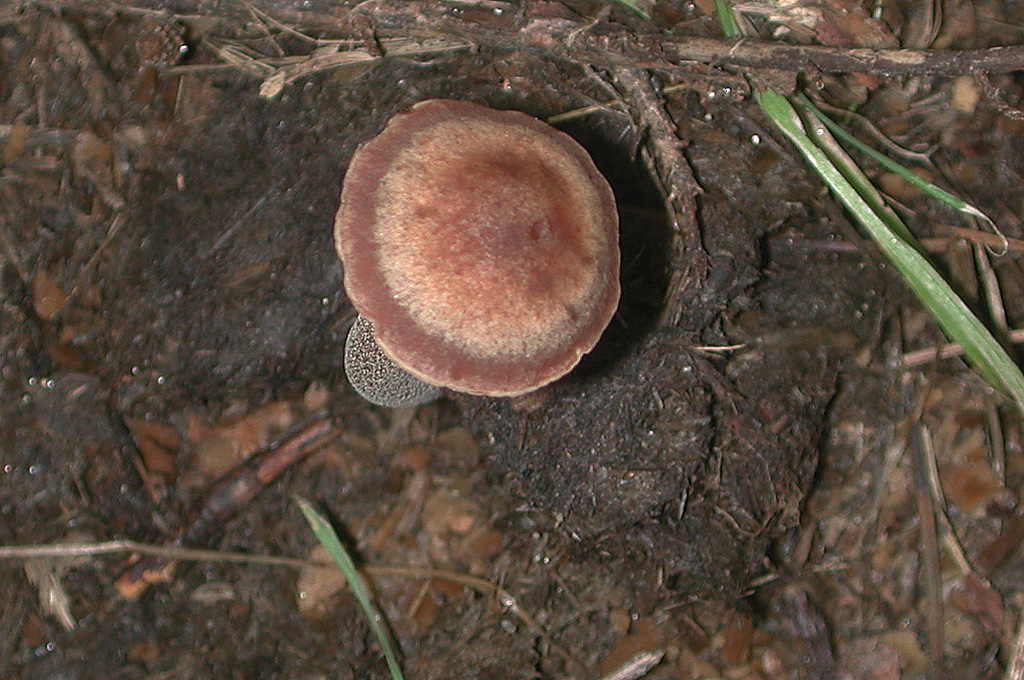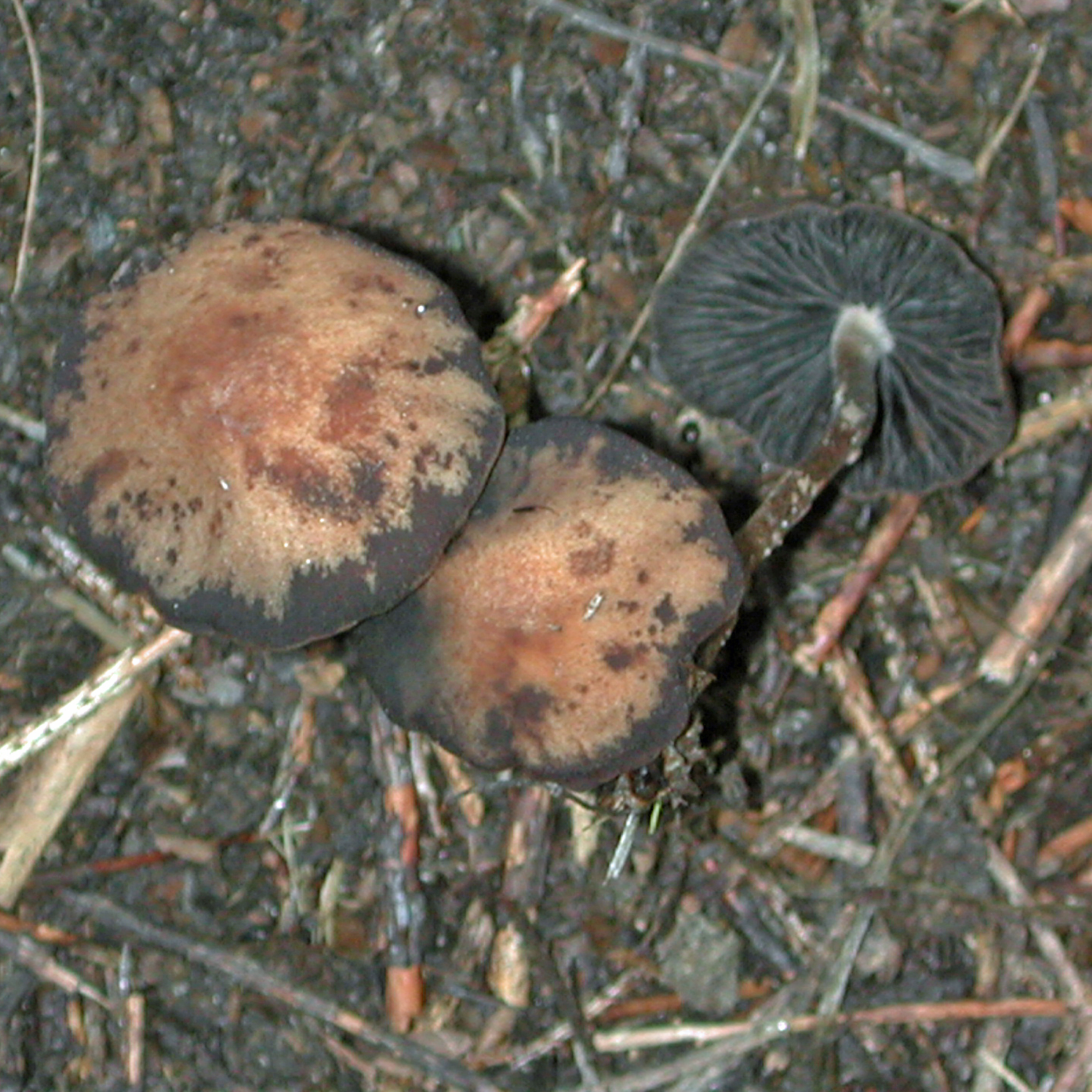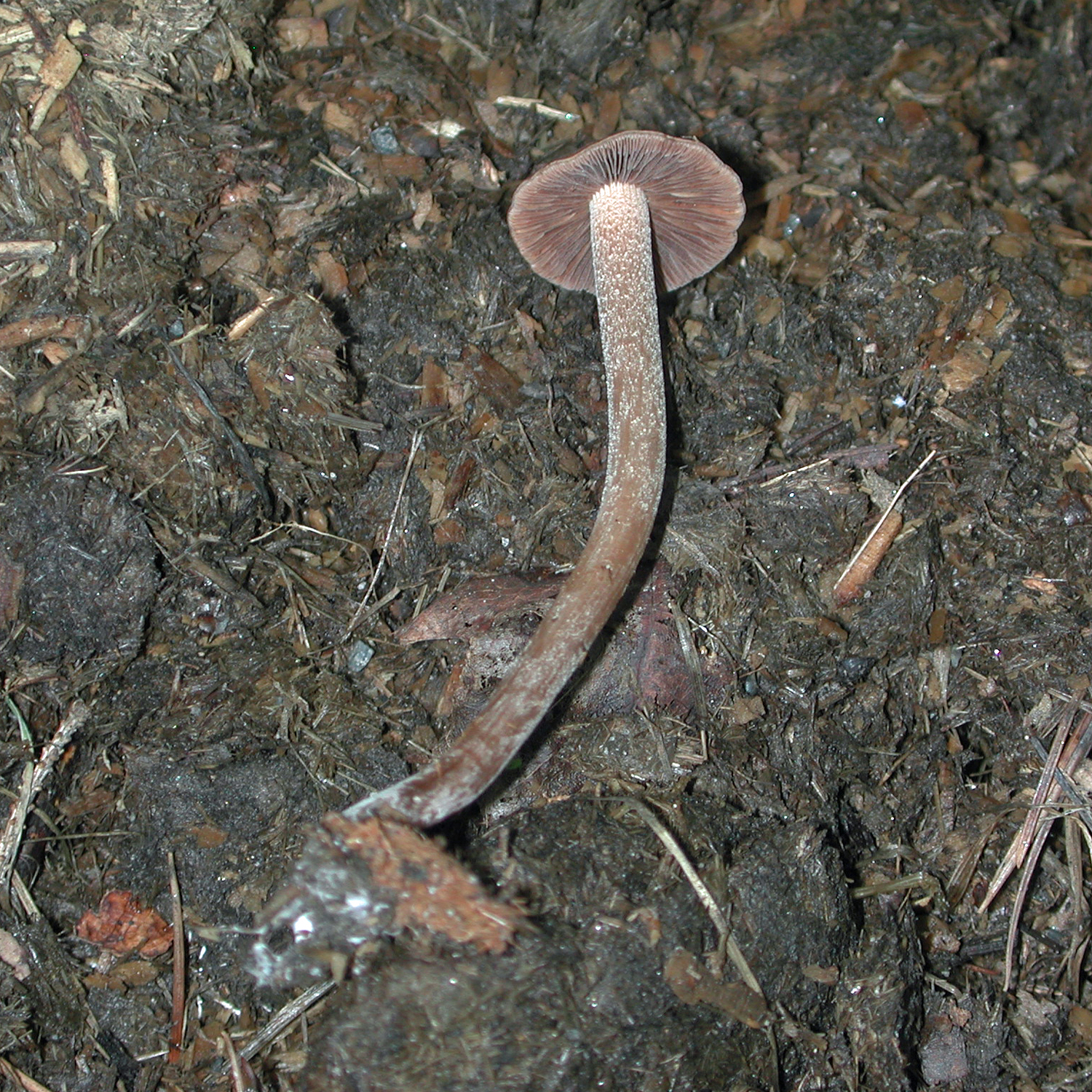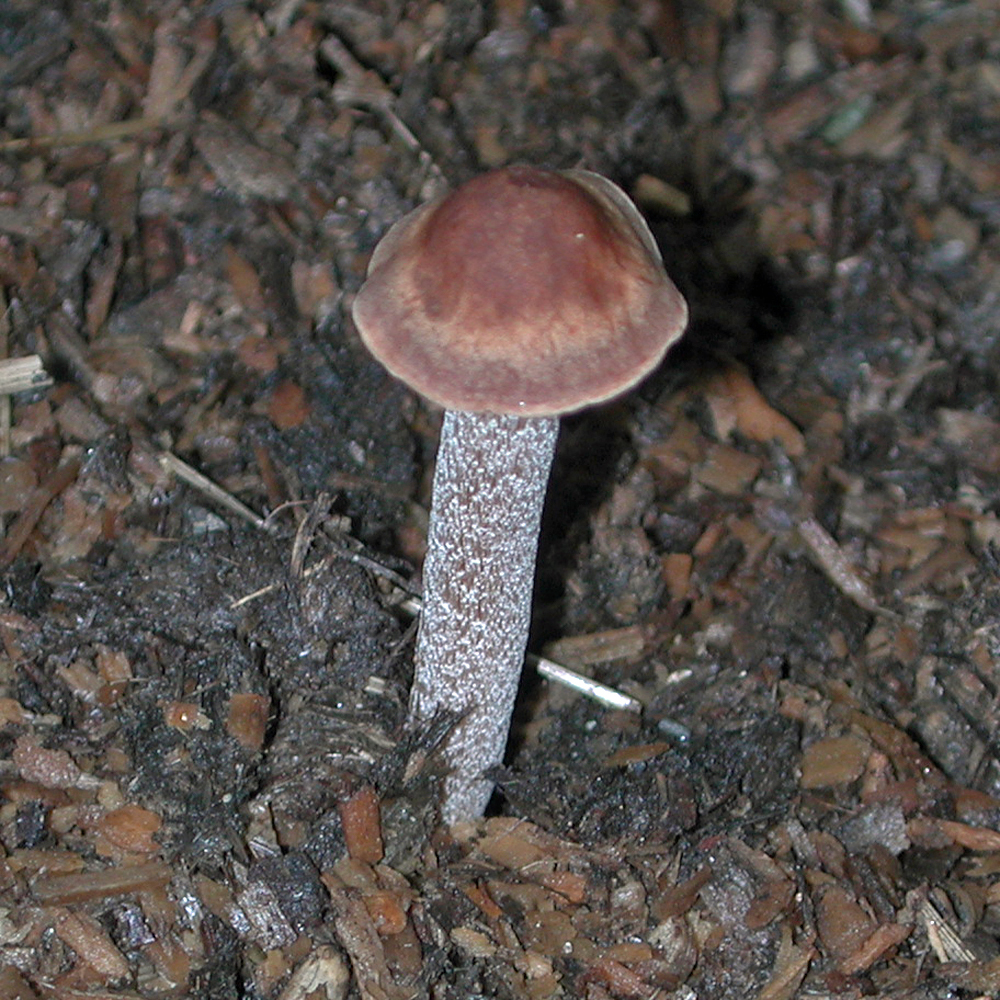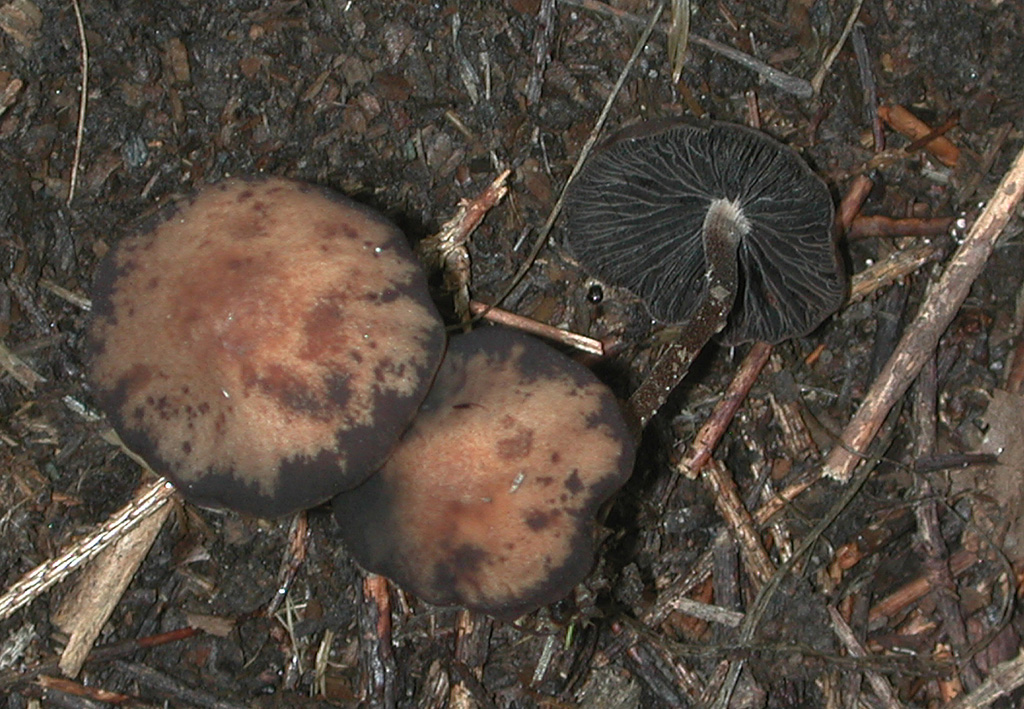

 Synonyms: Girdled Panaeolus, Panaeolus subbalteatus.
Synonyms: Girdled Panaeolus, Panaeolus subbalteatus.

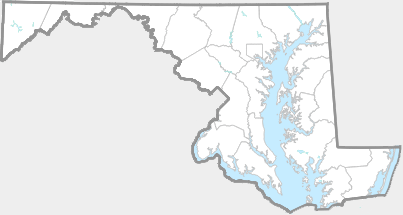
Cap: Tan/brown to black depending on whether wet or dry; hygrophanous; smooth to wrinkled; convex to broadly convex; may have broad dark band around margin; flesh light brown. Gills: Brown becoming black; whitish edges; close. Stalk: Reddish-brown coated with tiny white hairs; hollow.
Found scattered or in groups on horse or cattle dung. (J. Solem, pers. comm.)
There are 5 records in the project database.
| GA | AL | WA | FR | CL | MO | HO | BA | BC | HA | CE | PG | AA | CV | CH | SM | KE | QA | CN | TA | DO | WI | SO | WO |
